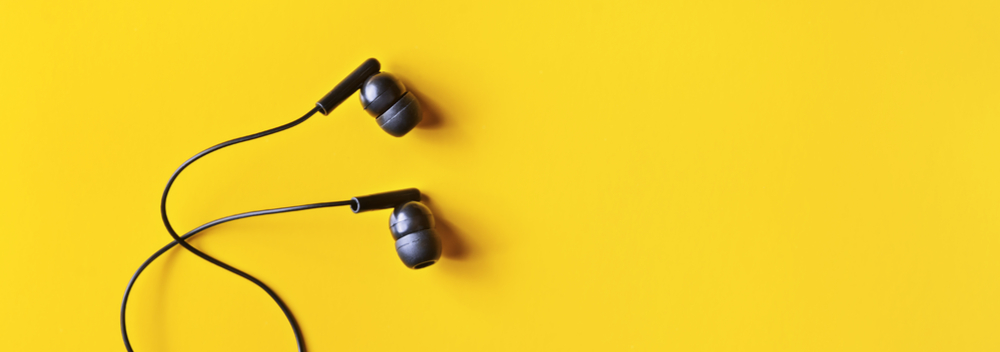Transforming productivity through unconventional methods
- 7 Min Read
Productivity has proven to become an issue for many organisations, with this sinking year on year. We look at what plays a part in ruining productivity in the office, and what could potentially increase it.
- Author: Louron Pratt
- Date published: Mar 5, 2019
- Categories

Productivity is vital in the workplace, and although it is apparent that this is imperative for a business to succeed, and their employees to fulfil their full potential, studies by Opus Energy say that 86% of UK SME’s claim that productivity is an issue. We delve into the importance of productivity in the workplace, and what can potentially worsen it.
 Julien Lesaicherre, Director, Workplace by Facebook, EMEA comments on the importance of workplace efficiency, saying “Workplace efficiency is vital to not only attract but retain top talent. People also expect more transparency, authenticity for their leaders and managers. The best way to motivate people is to give them a purpose. For that, you need tools that will be the best at translating your vision, ideas and feelings so those are heard and understood by your people.”
Julien Lesaicherre, Director, Workplace by Facebook, EMEA comments on the importance of workplace efficiency, saying “Workplace efficiency is vital to not only attract but retain top talent. People also expect more transparency, authenticity for their leaders and managers. The best way to motivate people is to give them a purpose. For that, you need tools that will be the best at translating your vision, ideas and feelings so those are heard and understood by your people.”
Although it may seem manageable to understand the main factors that increase productivity and the ones that don’t, we look into aspects of the workplace that could unconventionally ruin or increase efficiency in the office.
Aesthetics could be key
When looking into boosting productivity in the office, many don’t take into account the appearance of the office itself. Tania Adir, Founder, Uncommon commented on the importance of this, saying: “The days of novelty offices are over. We believe people are looking for places that will help them be more productive and creative, so we have designed our spaces at Uncommon under the principles of Activity Based Working (ABW). ABW is a method, where instead of forcing individuals to carry out the majority of work on a designated desk, it encourages people to recognise that different work activities can be better supported by spaces and features designed specifically for a task.”
She goes on to discuss how they have crafted their processes to ensure that everything is performed the maximise efficiency, “We have considered the sensory experience of our spaces, fine-tuning each to suit the task at hand. The scent in a room can change the way you think, whether you want calm concentration or inspired ideas, so we infuse our spaces with scents such as lemon verbena (to promote concentration) or vanilla and cinnamon (for creativity). Sounds also have an influence on our moods. If space is geared towards concentration, we curate a playlist that is slower and calmer, and with fewer lyrics as they’re often distracting. The speed of music we use reflects the heartbeat otherwise it becomes too distracting and you cannot focus or concentrate.” So it’s important to also consider the environment that a workforce is working in, as this could subtly impact the efficiency of everyone working in the office simply because of the atmosphere.
Transparency
Another aspect of work that may worsen productivity, that many may not be aware of is transparency at work. Julien from Workplace by Facebook elaborates on this point, saying “First of all, businesses must prioritise collaboration and transparency. Employees can waste a huge amount of time and become frustrated when the information they need isn’t available. By ensuring people at all levels can access documents and get answers to key questions as and when needed, businesses can reap the rewards of increased productivity whilst seamlessly developing a culture based on knowledge-sharing and openness.”
So if companies were to provide open answers on topics that aren’t hidden away, this could boost mood and productivity. He continues by saying “The level of transparency this provides empowers businesses to tap into the unknown potential of their employees. Over three quarters (76%) of business leaders believe unlocking employee creativity is vital for growth. Collaborative technology unleashes creativity. It gives employees a voice and encourages employees to express themselves, empowering organisations to adopt two-way communications.”
Julien ends by using Starbucks as a prime example of why transparency is such a vital key to boosting productivity, and why companies should consider adopting this change, saying “For example, when Starbucks joined Workplace by Facebook, it saw an instant change in the way employees communicated internally. The business benefits were clear to see – one manager posted that their store had received 20 requests for a particular drink, as had another manager in a different location. The next thing you know, the category marketing team has seen it and that drink has been added the list to Starbucks Official Beverage list in less than 24 hours. This illustrates how the most agile and forward-thinking companies are those which give employees an equal voice, helping to drive change within their businesses which everyone feels invested in. The knock-on effect of this? Increased productivity.” So it is clear that if employers can adopt a transparent change to their business, this could heavily benefit the productivity of their workforce.
The impact of music
 Although transparency and office settings can aid in increasing productivity, there are many other unconventional ways in which companies can boost work efficiency even outside of the office. For example. Singapore Airlines has recently looked into the topic of productivity for workers whilst they are travelling, they said “Many workers are expected to travel more for business and so we created a podcast that will be available on iTunes that provides hints and tips on how corporate travellers can enhance their productivity when travelling. It also looks at how the design of seats and cabins on aircrafts have been designed with productivity for passengers in mind, as well as drawing on best in class examples of working at optimum productivity whilst flying”
Although transparency and office settings can aid in increasing productivity, there are many other unconventional ways in which companies can boost work efficiency even outside of the office. For example. Singapore Airlines has recently looked into the topic of productivity for workers whilst they are travelling, they said “Many workers are expected to travel more for business and so we created a podcast that will be available on iTunes that provides hints and tips on how corporate travellers can enhance their productivity when travelling. It also looks at how the design of seats and cabins on aircrafts have been designed with productivity for passengers in mind, as well as drawing on best in class examples of working at optimum productivity whilst flying”
Leading on from this, the debate that has been ongoing for years has been on whether music boosts productivity, although this is very much dependant on the individual, research initiated by Accountemps found that more than seven in 10 (71%) professionals said they are at least somewhat more productive when music is playing at the office, with pop, rock and country songs providing the biggest boost.
Michael Steinitz, executive director of Accountemps comments on this, saying “While music can be a stress reliever or source of motivation for many workers, it can be a distraction for others. Those who want to listen to music in the office need to be aware of company policies and considerate toward their colleagues.”
But above all, it is important to measure productivity. By tracking this, it will make it easier to implement processes such as team lunches, structure meetings, and organise working times. AXA UK elaborates on this, saying: “The use of productivity measurement tools may highlight particular times of the day when people are the most focussed. Someone might be able to concentrate better in the mornings, for example, than they are past 3 pm. This could mean that this particular person might favour a more flexible work schedule that allows them to start work earlier in the morning and leave earlier. This could benefit both the employee, as they are able to have a more flexible working structure, and the business, as they would be in the office during the time when they are the most productive.”
There are many changes that a company can make in order to boost work efficiency, and not one size fits all. But communicating, measuring and being transparent could make a huge difference in the productivity of a workforce.

